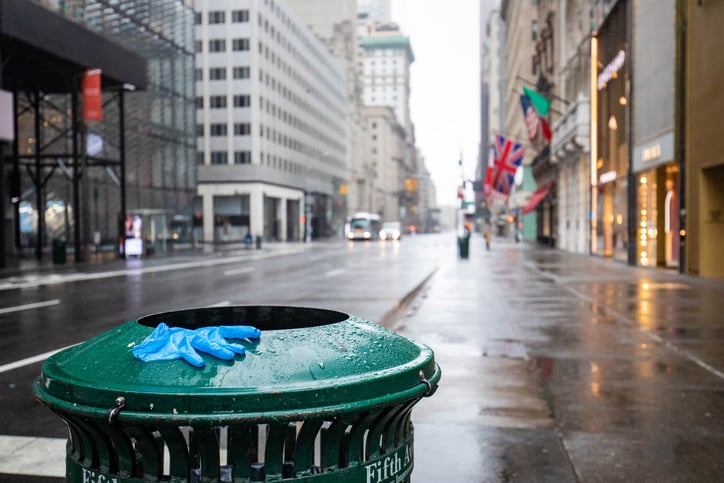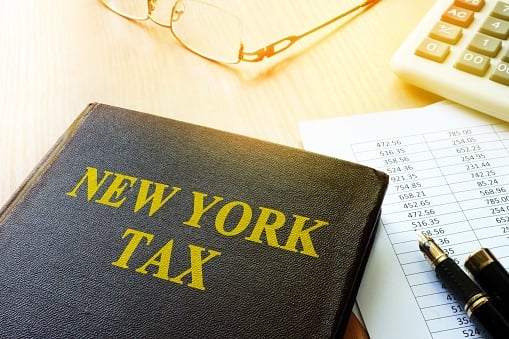
In a decision dated November 25, 2020, the United States District Court for the Southern District of New York upheld the validity of three local laws enacted in response to the COVID-19 pandemic. The Local Laws are the “Residential harassment law” (Local Law 56-2020, amending Admin. Code Section 27-2004(a)(48)); the “Commercial harassment law” (Local Law No. 53-2020, amending Admin. Code Section 22-902(a)(11)); and the so-called “Guaranty Law”, (Local Law No. 55-2020, adding Admin. Code Section 22-1005 (“Personal liability provisions in commercial leases”) and amending Admin. Code Section 22-902).The “Harassment Laws” prohibit harassment of residential and commercial tenants because they were impacted by COVID-19. The Guaranty Law provides, in part, the following:
“A provision in a commercial lease…or [in another document] relating to such a lease…that provided for one or more natural persons…to become, upon the occurrence of a default or other event, wholly or partially liable for [amounts] owed by the tenant under such agreement…shall not be enforceable against such natural persons if the conditions of paragraph 1 and 2 are satisfied:
- The tenant satisfies the conditions of subparagraphs (a), (b) or (c):
(a) The tenant was required to cease serving patrons food or beverage for on-premises consumption or to cease operation under executive order number 202.3 issued by the governor on March 16, 2020;
(b) the tenant was a non-essential retail establishment subject to in-person limitations under guidance issued by the New York state department of economic development pursuant to executive order number 202.6 issued by the governor on March 18, 2020; or
(c) the tenant was required to close to members of the public under executive order number 202.7 issued by the governor on March 19, 2020.
- The default or other event causing such natural persons to become wholly or partially personally liable for such obligation occurred between March 7, 2020 and March 31, 2021, inclusive.”
The Court held that the Harassment Laws do not implicate the Plaintiffs’, who are landlords, free speech rights and do not violate their due process rights; they “do not prevent landlords from making routine rent demands” and “the Laws are sufficiently clear on what constitutes harassment.” The Court also held that the Guaranty Law does not violate the Contract Clause “…because this Circuit’s jurisprudence affords broad deference to the good-faith efforts of policymakers to regulate in the interest of the public good…” and “[i]t is not the role of the Court…to opine on the wisdom…of the decision to shift the economic impact of the pandemic from commercial tenants and their guarantors to landlords.” Lastly, the Court ruled that these Local Laws were not preempted as they did not conflict with State laws. The Plaintiff’s claims were dismissed. Melendez v. City of New York, 20-CV-5301, can be obtained at 2020 U.S. Dist. LEXIS 222774.
Similarly, in a decision dated November 20, 2020, Judge Arlene P. Bluth of the Supreme Court, New York County, held that the “Guaranty Law” (Admin. Code Section 22-1005) does not violate the contracts clause of the United States Constitution, that it applies to stand-alone personal guarantees for commercial leases, and that it applies, not merely to cases commenced after its enactment, but to defaults from the beginning of the pandemic. The Court dismissed an action commenced against the natural person guarantor of a commercial lease. 204 East 38th LLC v. Sons of Thunder LLC, 2020 NY Slip Op 33862, is posted at
http://www.nycourts.gov/reporter/pdfs/2020/2020_33862.pdf.
Judge Bluth also, in a ruling dated November 20, 2020, relying on Admin. Code Section 22-1005, dismissed claims against the natural person guarantor of a commercial lease. The Court also dismissed the guarantor’s counterclaim for damages against the Plaintiff stemming from the Plaintiff’s refusal to withdraw its claims in light of Section 22-1005. “The instant action did not constitute harassment as a matter of law.” 27 Morton, L.P. v. MDS Fashions, LTD, 2020 NY Slip Op 33861, is posted at http://www.nycourts.gov/reporter/pdfs/2020/2020_33861.pdf.
However, in another case, also decided November 20, 2020, Judge Bluth granted the Plaintiff-lessor’s cross-motion for an Order directing a commercial tenant and its guarantor to pay back rent, and to pay additional rent during the pendency of the action. The Plaintiff alleged that, except for two months, rent had not been paid since October 2019. Since the Plaintiff did not seek to have the tenant evicted “the instant case does not violate any executive orders [and, therefore, the] [p]laintiff is permitted to…seek damages arising out of the tenant’s failure to pay rent.” As to the Defendant-guarantor, Admin. Code Section 22-1005 did not apply. “The default here occurred long before the time period provided for” in that Section. CP Associates LLC v. Concourse Family Dental, 2020 NY Slip Op 33875, is posted at http://www.nycourts.gov/reporter/pdfs/2020/2020_33875.pdf.




